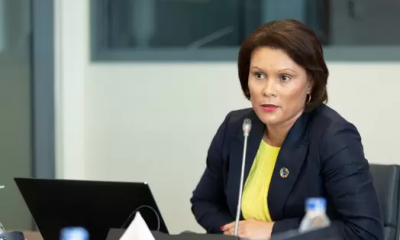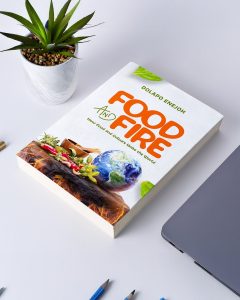Africa speaks
Africa Day 2020: It’s my African dream- that time for Africa and Africans has finally come
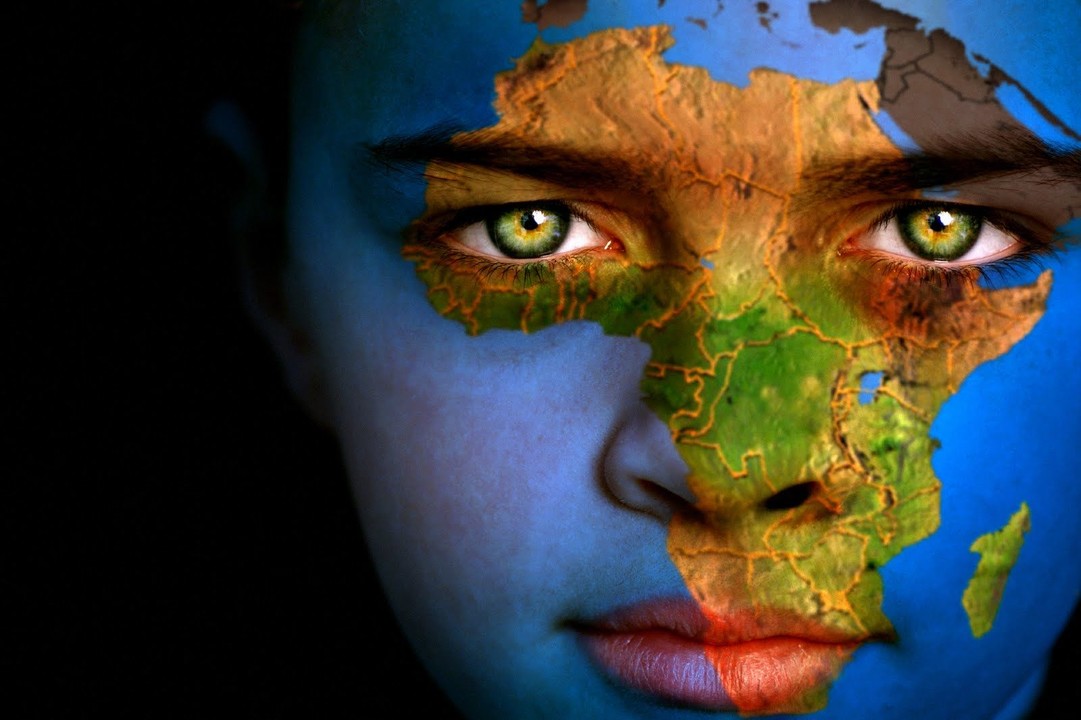
The Africa Day has been annually celebrated on the continent and by African communities in other parts of the world since 1963. It is a commemoration of the foundation of the Organisation of African Unity – now known as the African Union- and a tribute to the achievements made by African leaders over 50 years ago to decolonize the continent and pave the way for a greater Africa .
The main objective of the 30 nations who met on that day of may 25th in Ethiopia, Under the leadership of the Pan-African President Kwame Nkrumah, was to unite Africa and identify post-independence socio-economic development concerns which were plaguing the continent.
Since then, a lot has been made politically, socially and economically to grow Africa. And there is still a lot to be done because, despite being blessed with a rich bounty of natural resources (the continent holds around 30% of the world’s known mineral reserves, including cobalt, uranium, diamonds and gold, as well as significant oil and gas reserves), it has fertile soils that produces cocoa, coffee and tea, Africa is still one of the poorest land on earth with almost 50% of the population living on less than $1.25 per day.
So, why is it that a continent with such vast potential wealth can remain so poor? Why do we see so many Africans looking for survival means outside of their home country? why do we still see thousand of people so desperate to quit Africa that they are ready to draw in the waters? Why, 56 years after the Africa Union was formed, the situation of the continent is still looking so terrible?
“The black continent”
My whole life, I’ve heard people -including Africans- talking about Africa as “the black continent”. Not because of the skin of the people living there but because of the multiple challenges we face .
Poverty, over-dependence on international aid, weak governance and lack of true leadership, endless wars and conflicts, lack of international intelligence, huge dependence to western countries, etc…all these factors are painted in such a negative way by the medias and other analysts that even African themselves tend to forget where the Truth is and develop, together with the international readers and visioners an Africaphobia or a sense of mercy that doesn’t play in favor of the attractivity of the continent. I am not saying everything is false, I am just thinking everything is not that hopeless.
With Africa always being held in bad light, very few of its positive aspects are ever allowed to come to the forefront. I remember when I shared my enthusiasm of returning to the continent, many people not understanding my willingness to leave my comfort zone in France to go back to this terrible place in the world. I’m not even sure they realized how weird their comments were so these biases become unconscious.
These stereotypes sometimes give a wrong perception of what Africa really is and what Africans really are.
No, Africa is not a country. It’s the second largest continent in the world made of 54 countries with many different cultures, traditions, and ethnic groups. No, Africa is not all jungle ; the Sahara Desert makes up one-third of the continent. No, not all African embrace Voodoo or black magic, not all Africans are polygamous, all African men are not inattentive to their child, all business leaders are corrupt … and yes, Africa has bookstores!
I know every country, every culture has its own stereotype and biases but I thought interesting to demystify at least few of them, although King Hassan II said one shouldn’t “waste time putting forward arguments in good faith in the face of people of bad faith”.
Some of these stereotypes are sometimes true. Yes, Africa is still facing several challenges as it struggles to free itself from poverty, including weak healthcare and education systems. Yes, Africa has the youngest population in the globe and a chronic unemployment that makes the task our continent faces even more challenging. Yes, Africa is struggling against internal conflicts… But as the McKinsey & Company studies published in Nov 2018 says, ” Africa is ready for an economic boom similar to that of Asia” .
If Africa handles its proper new opportunities wisely, this time, finally, may be the time of African themselves.
The Africa dream is real!
With its population expected to double by 2050 (by 2025, the UN predicts that there will be more Africans than Chinese people) and its $5.6 trillion dollars in projected consumer and business spending by 2025, with its 400 companies at annual revenues of $1B or more, with its 89 cities of over 1 million inhabitants by 2030 and the potential growth in manufacturing output by 2025, with 122M active users of Financial mobile services, 11M square miles of land-three times that of Europe, the continent is becoming more and more important for investors.
And hopefully the African population itself. These flourishing numbers certainly explain the reason why there has been much talk of an African renaissance in recent years. Europe, Americas and Asia, governments and businesses from all around the world are all fighting to increase their influence in the continent and take advantage of its massive opportunities.
…but unless the business in Africa is beneficial to all parties, it can’t be sustainable and it will not eradicate poverty.
Africa is hungry not because there is no food. Nor because it’s poor. It is just that those who need the food and money are not getting it because, one way or the other, those who have the power and the means have not cared enough to do something about it.
Acemoglu and Robinson assert in their book Why Nations Fail’ that the major difference between developed countries and developing countries is in their political evolution. Developed countries have political and economic systems that are inclusive and offer opportunities for most people to create wealth.
Still, statistics says 80% of the global wealth is controlled by 10% of the worldwide population. If those involved in driving the economic engine are not more inclusive, independently of their community, nation, religion or race (and even gender), if they are not ready to drive the economic engine in a fair way that will lead to including every human being, it is the whole humanity which will finally suffer from it.
Also Read: Meet Seipati Mokhuoa – CEO Southern African Women In Leadership (SAWIL)
As an example, providing good health care and qualitative education for the disadvantaged populations is not charity. It is an investment that creates quality human resources and expands markets, furthering the reach and scope of the economic engine. Leaving over 50% of the population out of an active involvement in the economic process does not make good business sense.
Often, the engagement of Africa with the rest of the world has been positive. New infrastructures are built, new factories, new companies flying in and out… but the results over decades shows it’s still not enough, what is needed now is true economic empowerment. and it goes with solid leadership.
African Union’s 2063 Agenda, “is an approach to how the continent should effectively learn from the lessons of the past, build on the progress now underway and strategically exploit all possible opportunities available in the short, medium and long term, so as to ensure positive socio-economic transformation within the next 50 years.”
Education, entrepreneurship and women empowerment can help Africa thrive in the next 50 years. They have been ignored for too long now. And today, more than ever, we have the necessary resources, capabilities and technology to fix almost all the problems in the continent, provided we finally unite our 54 strengths. Whether we want to do it or not simply depends on how inclusive our economy becomes, and how courageous, visionary and focused on inclusive long term goals, our leaders are .
It’s my African dream: that time for Africa and Africans has finally come.
Article By: Elisabeth Moreno, Vice President and Managing Director HP
Africa speaks
Africa needs to leverage Fund for Responding to Loss and Damage to enhance resilience of its cities

By Dr Muhammad Gambo
The issue of climate change and its associated impacts, especially on African cities, is a critical topic that demands urgent attention.
Every day, Africa faces the consequences of something it did not cause. While 7 out of the 10 world most climate vulnerable countries are in the African region, Africa only emits about 4% of greenhouse gases, and in terms of historical contributions the content ranks even lower – according to World Meteorological Organization’s State of the Global Climate report 2022.
Heatwaves, heavy rains, floods, tropical cyclones, and prolonged droughts, which are some of the effects of climate change, are having devastating impacts on communities and economies, with increasing numbers of people at risk across the continent. Africa’s rapidly expanding cities are hotspots of this vulnerability and impact.
According to the OECD report, Africa is one of the world’s least urbanized continents, yet hosts the most rapidly urbanizing region – the Sub-Saharan Africa (SSA). The region has an urban population of 500 million people, accounting for approximately 40% of the continent’s population, and an urban growth rate double that of the global average at 4.1% per year, compared to the global average of 2.1%. By 2050, it is estimated that over 60% of Africans will be living in urban areas.
This accelerated urban growth puts further pressure on existing challenges such as inadequate infrastructure, insufficient access to basic services, unemployment, and housing shortages. About 56% of urban population in Africa reside in informal settlements, compounded by insecure land tenure and constrained access to essential infrastructural services such as sanitation, water and energy, according to the African Cities Research Consortium and Brookings – 2024 reports.
A Climate Crisis
It’s widely acknowledged that climate change will affect Africa’s socio-economic development trajectory, threatening the continent’s attainment of the 2030 Sustainable Development Goals and the objectives of the Africa Union’s Agenda 2063.
In UN Secretary-General António Guterres’ own words, “Africa is on the frontlines of the climate crisis. The time for action is now. We must invest in sustainable solutions to protect our people and planet.”
But all is not lost. One of the recent global developments in climate policy has been the establishment of the Fund for Responding to Loss and Damage (FRLD), which aims to provide financial support to vulnerable countries affected by climate disasters.
The Fund, established during the COP27 negotiations, holds significant potential for African nations, especially in the context of urban development and the challenges faced by rapidly growing cities across the continent. It has the potential to serve as a powerful tool to address both the immediate impacts of climate disasters and the longer-term need for sustainable urban development in Africa, through the principle of “building back better”.
Firstly, the Fund could be channeled into immediate relief and rebuilding efforts, such as reconstructing homes, improving drainage systems to mitigate flooding, and ensuring access to clean water and sanitation. For example, funding could support the delivery of infrastructure that can withstand natural disasters, such as resilient affordable housing and other related climate resilient infrastructure for cities. Ensuring climate resilience and addressing key infrastructural shortages that exacerbate vulnerability is crucial in all activities the Fund will support.
Such projects would create more sustainable cities that are better equipped to handle the intensifying impacts of climate change while simultaneously offering economic opportunities through job creation.
Secondly, the Fund could be used to empower local communities, particularly marginalized populations in urban slums and informal settlements, who are often the hardest hit by climate disasters. Supporting these actors to adapt and develop is crucial for sustained resilience. Also, the informal economy – which forms a significant part of Africa’s urban economy – should not be left behind.
Finally, the Fund could be used to support capacity building initiatives such as training local leaders, strengthening disaster management systems, and creating meaningful climate partnerships.
Reimagining African cities
That said, the Fund for Responding to Loss and Damage has the potential to play a transformative role in the urban development of African cities, particularly in mitigating and adapting to the impacts of climate change.
Whether this potential is reached depends on the setup of the Fund and the criteria used to assess projects – and whether those are in line with African realities in terms of data and capacity availability. It also depends on careful planning and effective collaboration to ensure that the Fund benefits those who need it most.
This is a unique opportunity to not only address the consequences of climate change, but also to reimagine African cities as models of sustainability and inclusivity for the future.
Dr Gambo is the Head of Policy, Research and Partnerships at Shelter Afrique Development Bank.
Africa speaks
Fighting Battles that Matter
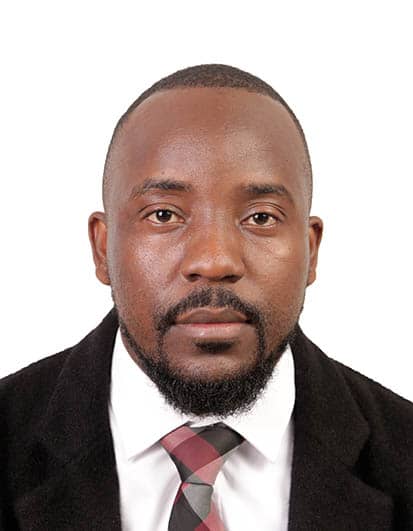
By: Nchimunya Muvwende, an Economist
In the global arena, which is full of challenges, nations are duty-bound to choose the battles they will fight. Different factors influence the choices of fights to be involved in. For the wealthy and developed nations, it is mostly battles of expanding their territories, dominating trade routes, securing natural resources, and building the best armies to protect their nations. What of African nations? Have they identified the right fights, and are they engaged in the right battles, or is it a matter of imitating others – thinking that by walking their path and duplicating their efforts, they too will develop? This article focuses on identifying the fights that should matter for developing nations, especially in Africa.
Global Battles
Over the years, big nations have been engaged in fierce fights that leave the rest of the world wondering and adversely affected. Geopolitical wars have adversely affected global supply chains with nations upscaling their military expenditure. A Stockholm International Peace Research Institute report shows that, in 2024 alone, military spending hit a record US$2.7 trillion, with the USA, China, Russia, Germany and India accounting for 60% of this amount. Nations are building armies and weapons of mass destruction which they use to initiate wars while developing countries are expected to pick sides.
Trade wars have increasingly become the order of the day, with powerful nations flexing their muscles and distributing tariffs as though they were Father Christmas handing out candy during the festive season. These nations invest heavily in commanding global production chains and positioning themselves to dictate the terms of trade. Every decision they make impacts the world, changing markets and forcing smaller economies to adapt.
It is worth noting that many of these nations have already secured the basic needs of their citizens, and so, their focus has shifted beyond survival to the pursuit of global dominance, whether through economic influence, military power, or control of trade routes. But can the same be said about African nations? While some African countries are always engaged in some form of war, the question is, are they using resources to fight battles that make their citizens better off?
Africa’s real battles
Despite over 80 % of African nations gaining independence more than 50 years ago, many are still battling basic but severe and widespread challenges. The continent remains home to over 60% of the world’s extreme poor, with more than 280 million people being undernourished. Africa also bears a disproportionate share of the global disease burden. According to the 2024 World Health Organization’s World Malaria Report, African alone accounts for a staggering 95% of all malaria deaths worldwide.
The continent faces a massive youth unemployment crisis. The 2024 World Economic Forum report records that, each year, between 10 and 12 million young people enter the workforce, yet only around 3 million new formal jobs are created. As a result, the youth unemployment rate averages over 20%, with some countries particularly in sub-Saharan Africa experiencing rates as high as 70–80%. As though this is not enough, UNESCO reports that, one in every five African children is not enrolled in school, and the continent is home to nearly 30% of the world’s out-of-school children. Infrastructure in many countries is still a sorry sight, with many people lacking the necessary infrastructure needed to access basic needs. These are not merely statistics, they reflect a harsh reality in many African nations. They represent battles that truly matter and demand urgent attention, before diverting focus to challenges of lesser importance. While the world is a global village, we must realize that choosing the right battles is important.
Agenda Setting
Advanced countries have often set the agenda of what battles nations should be prioritised. In a 2023 major speech at the Black Star Gate in Accra, Ghana, U.S. Vice President Kamala Harris highlighted Africa’s immense potential, not as a recipient of aid but as a key global market. She noted that Africa’s median age was 19 and that by 2050, one in four people in the entire world will be on the continent. This demographic reality positions Africa to drive the future of the world, with African ideas and innovations shaping global progress.
While this cited potential should be celebrated, it is equally important to recognize that advanced countries approach partnerships with their own interests in mind. They are setting an agenda and Africa risks becoming a pawn, fighting battles that matter to others while neglecting its own priorities. Africans should begin to ask themselves this important question, who should set the agenda of wars we engage in? The African Union, SADC, COMESA and other African organisation’s agenda, are they inbuilt and helping to fight battles that truly matter for the continent?
Why should nations facing severe domestic challenges increase military budgets to fight wars with neighbours when they should instead collaborate to fight common challenges? The same resources could educate children, expand healthcare access, or provide clean drinking water to drought-stricken communities. Why are funds channelled to expensive international conferences that discuss problems without delivering solutions, instead of directly addressing citizens’ urgent needs? Why prioritize natural resources for foreign investors when they could be harnessed to reduce national debt and improve livelihoods? Unless countries focus on battles that truly matter to their own citizens rather than just pursuing global agendas that sometimes yield little benefit, there will be no real improvement in people’s lives. The result will only be a polished reputation with no tangible gains to challenges that matter.
Developing countries need to introspect to consider the battles that truly matter to them. Do their national budgets reflect a genuine commitment to improving citizens’ lives? Are geopolitical disputes more beneficial than collaborative solutions to common problems? The truth is that Africa’s future hinges on the ability of leaders’ ability to choosing wisely, to invest not in conflict but in its people, and focusing on the battles that will make a tangible difference in the lives of their people before focusing on global issues.
Africa speaks
Food, Fire, and the Soul of a Meal; A Conversation with Dolapo Enejoh
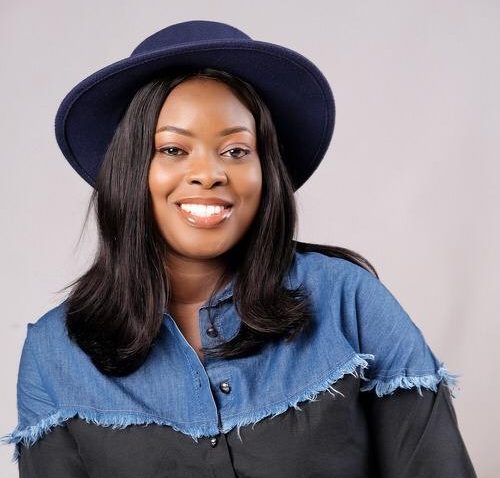
When I sat down with Dolapo Enejoh; a Nigerian-born and United Kingdom resident, to talk about her new book Food and Fire, it didn’t feel like a typical author interview. It felt like sharing a meal, rich with memory, meaning, and a deep sense of purpose.
The idea for the book, she told me, quietly began taking shape in 2021. The world was still recovering from the pandemic, and conversations around food seemed dominated by talk of scarcity, rising obesity rates, or environmental concerns. But Dolapo noticed something was missing.
“I kept thinking, where is the human story in all this?” she said. “Food isn’t just fuel. It’s culture. It’s memory. It’s how we make sense of who we are.”
That realisation, both simple and profound, sparked what would become Food and Fire, a book that invites us to see food not just as a product, but as a portal.
As we talked, she shared a story that felt like the perfect origin point. She remembers being a child in Akure, Nigeria, watching a Planta margarine commercial on a black-and-white TV. A mother serving breakfast. A family smiling around the table.
“It was such a small moment, but it stayed with me,” Dolapo recalled. “That image mirrored the joy I knew in my own home. I think that was the first time I understood that food is where belonging lives.”
Her Nigerian upbringing runs through every chapter of the book like palm oil in a pot of jollof rice, flavourful, essential, and unapologetically bold. “We’re a people who express love through food,” she explained. “Whether it’s jollof at weddings or yams during harvest festivals, food is celebration, sacrifice, and story.”
She credits this cultural grounding with giving her a unique lens to ask deeper questions about modern food systems, while still honouring ancestral wisdom.
One chapter that stood out during our conversation was Chapter Seven, a heartfelt reflection on the lost intimacy of shared meals. Dolapo remembers how mealtimes in her childhood home were sacred. “No distractions. No phones. Just conversation and presence,” she said. “Now, so many families eat with phones in hand, barely exchanging words. We’re losing the dinner table as a place of connection.”
That loss, she believes, has emotional and social consequences we haven’t fully reckoned with.
Dolapo doesn’t just romanticize the past, though. She also embraces the possibilities that lie ahead. In the book, she tackles tough topics: industrialisation, food tech, globalisation, with nuance.
Take globalization, for example. “It’s a double-edged knife,” she told me. “We’ve gained access to new ingredients, new techniques, but we’ve also lost the stories behind our local dishes. We’ve traded depth for convenience.”
So what’s the way forward? For Dolapo, it’s about balance. “Innovation should enhance tradition, not erase it,” she said. “Food can absolutely be a bridge—between people, cultures, even generations. But only if we slow down enough to remember what it meant in the first place.”
Writing Food and Fire was no easy feat. The book blends lived experience, historical research, and insights from Dolapo’s academic background in biochemistry and nutrition. She referenced over 100 sources and pulled stories from Nigeria, Asia, and the West. But her criteria for what made it into the book was beautifully simple: “I chose food moments that carried emotional weight,” she said. “Meals that spoke across time, childhood dishes, war rations, festival feasts, sacred kitchen rituals.”
Perhaps the most challenging chapter to write was the one on industrialisation. “It was hard to strike the right tone,” Dolapo admitted. “I didn’t want to demonise fast food or glorify the past. I had to hold complexity, acknowledge the good, question the harm, and still keep it human.”
As we wrapped up our conversation, I asked what she hoped readers would walk away with after turning the final page.
“I want them to pause before their next meal and ask: Where did this come from? What memory does this carry? Who am I sharing it with?” she said. “That’s the heartbeat of the book. Food is not just about sustenance. It’s about connection.”
Dolapo’s vision is to have this book referenced across schools in Africa as a resource to preserve culture and heritage around food.
Food and Fire is the next chapter of Dolapo’s longstanding platform, Nutritious Lifestyle. “The blog was the seed,” she smiled. “This book is the tree. We’re building a global table around it.”
To learn more about Food and Fire or to get a copy, you can find the book on Amazon. (Link:
You can also connect with Dolapo and follow her journey through food, culture, and science at https://dolapoenejoh.substack.com or on Instagram and LinkedIn @dolapo_enejoh
-

 Oil and Gas3 days ago
Oil and Gas3 days agoTotalEnergies, Chevron Push for Faster Permits, Better Seismic Data in Africa
-
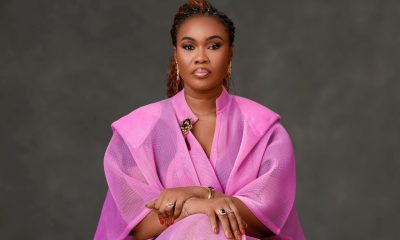
 Afripreneur20 hours ago
Afripreneur20 hours agoRevolutionizing Cross-Border Payments in Africa: An Exclusive Interview with Onyinye Olisah
-
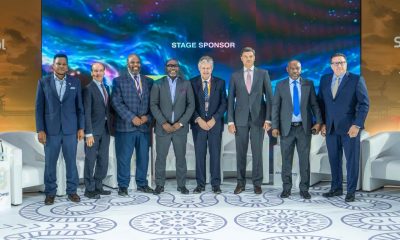
 Energy3 days ago
Energy3 days agoUnited States (U.S.) Political Will, African Reforms Signal New Era for Energy Investment








